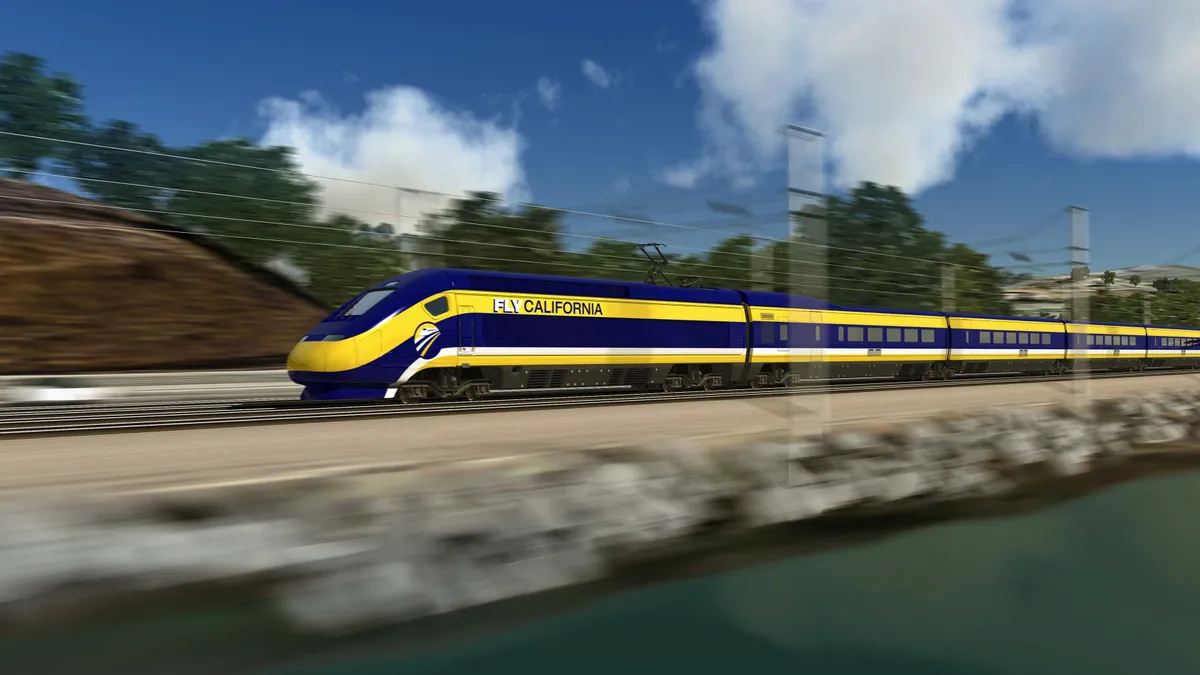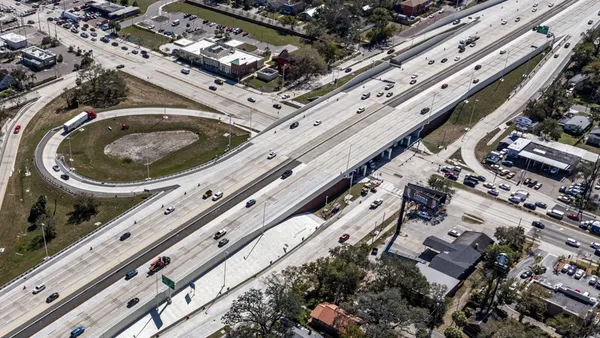Dive Brief:
- The same California-based activists behind a November 2018 ballot measure that could see the repeal of a state infrastructure investment fuel tax have proposed another ballot initiative to terminate the $77 billion high-speed rail line, eventually connecting the San Francisco Bay area and Southern California, the Los Angeles Times reported.
- The new measure, which would go before voters in 2020, includes a provision that directs the governor to stop construction of the bullet train, earmark surplus funds for other transportation projects and give more authority over transportation funds to city and county governments. It would also require all sales taxes on automobiles and car insurance to go toward transportation projects, including mass transit and bike lanes, all gas and diesel tax revenue to help pay for road projects with no contribution toward mass transit, and annual performance and efficiency repair audits on road and bridge projects. Backers say the sales tax provision would generate $7.4 billion annually, with gas tax revenue projected to reach $7.5 billion.
- The new measure is in response to critics of Proposition 6, the proposed gas-tax repeal, who insist that it will result in a shortfall of transportation infrastructure funds. The bullet train provision was included so that gas-tax money could never be used for any funding gaps the rail might encounter.
Dive Insight:
Although opponents of the new ballot initiative and Proposition 6 maintain that gas-tax funds could not legally be used to pay for any part of the high-speed rail line, it's not out of line to suggest that the California High-Speed Rail Authority might find itself faced with funding gaps since it's currently in that exact situation.
Plagued with delays in land acquisitions, route changes, change orders, the prospect of tunneling through mountain ranges to reach Southern California, design issues, a critical public and bad press, authority executives reported this year that it is currently short $40 billion, an amount that likely will increase. In addition, authorities said the cost of the bullet train overall could rise from $77 billion to $98 billion. The rail also is up against an undetermined amount of legal bills as it continues to face legal action from homeowners and businesses that don't want to give up their land or that otherwise object to the project.
One if its latest challenges was the demolition and redesign of an under-construction highway bridge because it did not meet the project's quality standards and showed possible "signs of distress." This and other bullet train problems have delayed the project four years to 2033.











